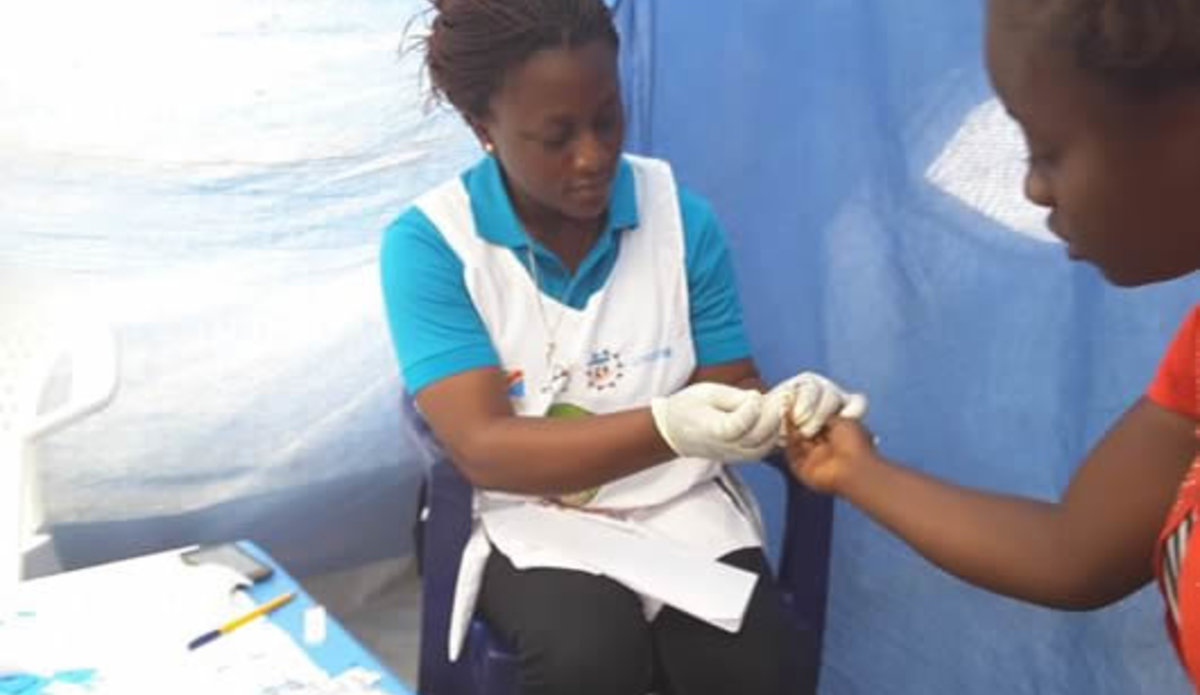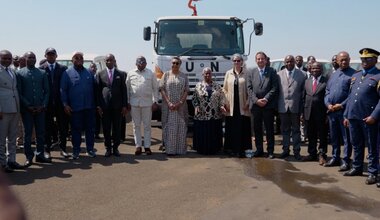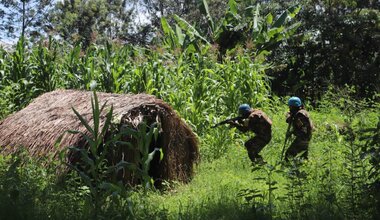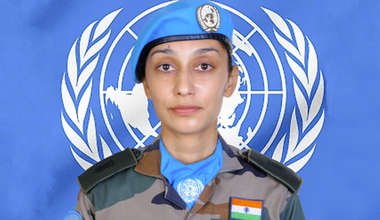MONUSCO seeks to prevent the spread of HIV at the grassroots through massive HIV testing/counseling
Bweremana, 22 March, 2016 – In partnership with UNAIDS, the Congolese National AIDS Control Committee (PNMLS), and with the support of the Association of Female Doctors in Goma (AFEMED), MONUSCO held a ceremony on Monday, 21 March at the Congolese National Armed Forces (FARDC) premises in Bweremana, in the North Kivu Province of the Democratic Republic of the Congo (DRC) to launch the campaign “Know Your Rights” that seeks to encourage people to know their HIV status as an effective way of preventing the spread of the disease.
This campaign that also dwells much on education, sensitization, and social mobilization to counter stigma and discrimination against people living with HIV will last for ten days running in this locality that shares a common boundary with the South Kivu Province.
Although the launch of the activities within the military compound was to give more focus on FARDC and their dependents, the inhabitants of Bweremana and its environs turned out massively for HIV counseling and testing. The young, the old, men, women, boys, and girls got the message and moved forward to know their HIV status through testing.
In support of these activities, AFEMED, the Congolese National Association of People Living with HIV (UCOP+), and PNMLS joined MONUSCO and UNAIDS to provide huge assistance to facilitate counseling and testing that was organized at the public square.
Present at the opening ceremony was a delegation from the HIV/AIDS Section of MONUSCO lead by Joseph Balironda who spoke on behalf of the Chief HIV/AIDS Officer. Speaker after speaker, some members of the delegation explained the importance of HIV counselling and testing as a preventive measure. They also demonstrated the importance of confidentiality in HIV testing and how the Post Exposure Prophylaxis (PEP) could help to prevent HIV in situations of potential exposure and circumstances where this therapy could be requested.
Speaking to the press at the event, the FARDC Commander, Colonel Makonde Mufaume Raymon said that it was important to promote the health of all people including the military officers and their families.
“We understand how important it is to be in good health and the importance of educating the public about HIV and AIDS”, he said, pointing to the need for the country to have healthy military officers that can be ready to defend the nation at all time. He also appreciated the joint effort of MONUSCO and UNAIDS and all the stakeholders working hard to address the issue of HIV and AIDS in the DRC.
“I want to thank MONUSCO for making this initiative possible”, he continued, “I also want to use this opportunity to call on each and every one of us to know their HIV status,” the commander said requesting for more HIV sensitization activities to be carried out in his area of command.
It is worthy of note that prevention remains at the heart of MONUSCO’s approach to HIV. This explains why MONUSCO joined UNAIDS in the fight to end HIV stigma and discrimination, which are part of the major barriers to HIV counseling and testing.
The leading team in the campaign has confirmed that when this ten-day campaign ends in Bweremina, focus will be on Sake - a locality close to the town of Goma, where the activities will target the entire population including mainly the Congolese National Police (PNC) and their dependents as well.
By Joseph Tabung Banah
 UN
UN United Nations Peacekeeping
United Nations Peacekeeping





